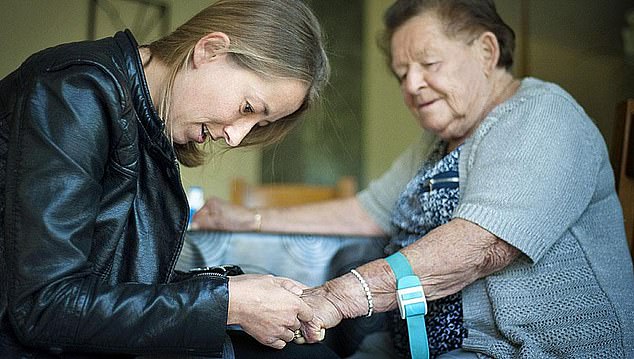Caring for parents and older children at the same time has a “significant” cost to health, according to a study.
According to research from University College London, being a “sandwich carer” with both older and younger dependents leads to decreased physical and mental wellbeing.
An estimated 1.3 million people in the UK juggle the responsibilities of caring for older relatives while raising children under 16, with numbers rising as people live longer.
Researchers analyzed the health of 2,000 sandwich carers and 2,000 other adults from the UK Household Longitudinal Study between 2009 and 2020.
They followed both groups for nine years during that time, using questionnaires focusing on the periods before, during and after becoming a sandwich caregiver.
They then used statistical models to predict changes in health and compared the two groups.
The researchers looked at how health changed during the transition to sandwich care and tested whether these changes were different between the two groups.
They also examined whether the number of hours of caregiving and gender affected these health changes.
Being a ‘sandwich carer’ with both older and younger dependents leads to decreased physical and mental wellbeing, according to research from University College London (file photo)

Researchers analyzed the health of 2,000 sandwich carers and 2,000 other adults from the UK Household Longitudinal Study between 2009 and 2020 (file photo)

The researchers looked at how health changed during the transition to sandwich care and tested whether these changes were different between the two groups (file photo).
Mental health was measured using a questionnaire that included questions such as whether parents had recently had problems concentrating, sleeping, or had been feeling under stress.
Meanwhile, a physical questionnaire covered various areas such as general health, mobility, body pain, and limitations in daily tasks due to physical problems.
The researchers found that parents who became sandwich caregivers experienced a significant decline in their mental health, especially those who spent more than 20 hours per week caring, which persisted for several years.
There was also a decline in their physical health during this transition compared to caregivers who did not use a sandwich, according to findings published in Public Health.
Dr Baowen Xue, senior author from UCL Epidemiology and Healthcare, said the study highlights the significant physical and mental health challenges faced by sandwich carers.
“These people, balancing the demands of caring for their children and their aging parents, often experience a decline in well-being,” she said.
Dr Xue added: ‘The study highlights the need for society to recognize and support the unique challenges faced by sandwich carers.
“Providing targeted support and resources, such as access to respite care and workplace flexibility, is crucial to helping maintain their health and wellbeing, particularly for those providing acute care.”


